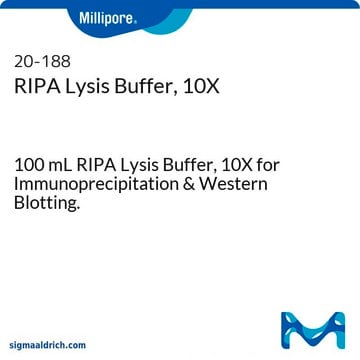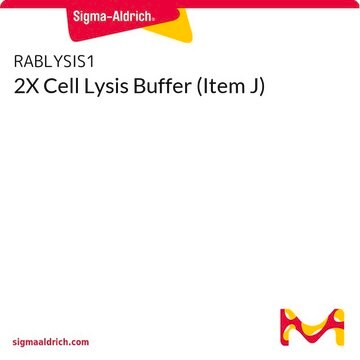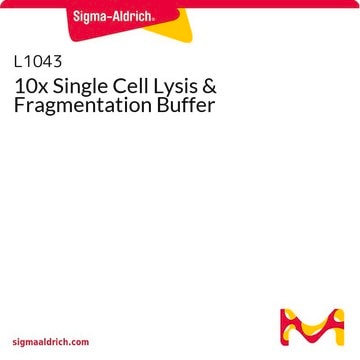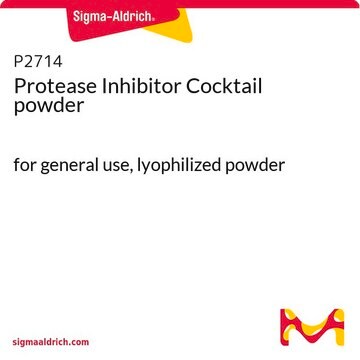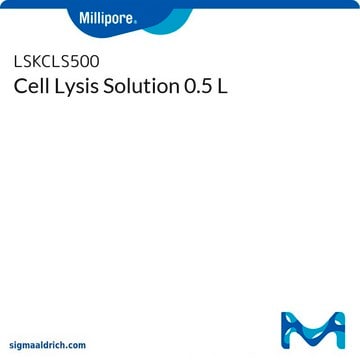MCL1
Mammalian Cell Lysis Kit
Sinónimos:
Cell Lysis Reagent
About This Item
Productos recomendados
usage
kit sufficient for 250 extractions (100 mm tissue culture plates)
Quality Level
technique(s)
immunoprecipitation (IP): suitable
shipped in
dry ice
storage temp.
−20°C
Application
Mammalian cell lysis kit was used to test the role of vascular endothelial growth factor (VEGF) receptor-1 and its ligand VEGF-B in motor neuron degeneration.
Features and Benefits
- The kit can be used to prepare cell lysis buffer and other modified buffers
- The kit enables the researcher to change the buffer′s components to obtain maximum efficiency for a specific protein
Components
Los componentes del kit también están disponibles por separado
- P8340Protease inhibitor cocktail 2.5 mLSDS
signalword
Danger
Hazard Classifications
Acute Tox. 4 Inhalation - Acute Tox. 4 Oral - Aquatic Chronic 3 - Eye Dam. 1 - Skin Irrit. 2 - STOT SE 3
target_organs
Respiratory system
Storage Class
10 - Combustible liquids
flash_point_f
Not applicable
flash_point_c
Not applicable
Certificados de análisis (COA)
Busque Certificados de análisis (COA) introduciendo el número de lote del producto. Los números de lote se encuentran en la etiqueta del producto después de las palabras «Lot» o «Batch»
¿Ya tiene este producto?
Encuentre la documentación para los productos que ha comprado recientemente en la Biblioteca de documentos.
Los clientes también vieron
Nuestro equipo de científicos tiene experiencia en todas las áreas de investigación: Ciencias de la vida, Ciencia de los materiales, Síntesis química, Cromatografía, Analítica y muchas otras.
Póngase en contacto con el Servicio técnico

